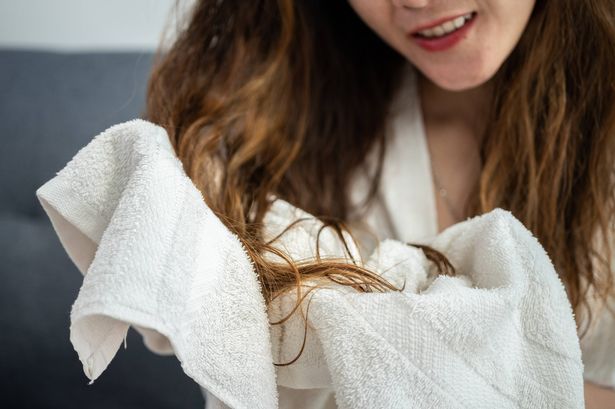
Bathroom essentials such as towels can be breeding grounds for bacteria if not washed regularly, but how often should we be cleaning them?
Ketsuda Phoutinane Spare Time Content Editor and Sally McLean
12:09, 01 Oct 2025
Exactly how often towels should be washed(Image: Boy_Anupong via Getty Images)
How often do you wash your towels? The answers here will vary – some people go as far as washing after one use and others leaving it for far longer. If you’re guilty of squeezing an extra use out of them before they go in the laundry pile, experts have shared how often towels should really be cleaned.
If the results of a recent survey are anything to go by, it’s far more often than many households think. Rubbish clearance specialists at Clear It Waste looked into the items in our homes that are dirtier than the toilet seat, and one thing they discovered is that our towels can be among the worst offenders.
It’s estimated that over 200,000 different species of microbes (including bacteria and fungi) can be present in a home at any given time, reports the Daily Record. The average home harbours thousands of different types of bacteria, but Brits might be shocked to discover that some of their everyday items are dirtier than a toilet seat.
How often towels should be washed
It turns out, the seemingly harmless bathroom towel is a breeding ground for bacteria. Their research revealed that one in three individuals only launder their towels monthly, which is far removed from their recommendation.
Clear It Waste claims towels should be laundered weekly as an absolute minimum. They calculate that this works out to approximately every three to five applications.
The firm partnered with Dr. Hana Patel, NHS GP and GP Medico-Legal Expert Witness, who provides expert insight into hidden bacteria and their potential health implications. Dr Patel emphasised the importance of adhering to this guidance regardless of whether towels appear spotless.
Bathroom towels are frequently left hanging in humid, heated environments, creating ideal conditions for bacterial and fungal development.
Towels are prone to growing bacteria(Image: Zen Rial via Getty Images)
Whilst many assume these items remain hygienic since they’re used on freshly washed hands, pathogens and mould can flourish on our moist towels, with the moisture itself potentially causing issues, according to Dr Patel.
She explained: “There are possibly millions of mould species on earth. The rare species that cause diseases do so by triggering allergies or asthma, or may be involved in hypersensitivity diseases.
“Even if visible mould is not present, dampness alone can increase the risk of health problems. Excessive moisture can promote the growth of microorganisms such as mould and other fungi, certain species of house dust mites, bacteria or viruses.
“Most people come into contact with the substances produced by damp and mould by breathing them in. This means they predominantly affect the airways and lungs. Damp and mould can cause disease and ill health in anyone, but people with underlying health conditions, weakened immune systems are at greater risk of ill-health from damp and mould.”
When to clean or replace other household items
Kitchen sponges
Other household items that frequently harbour more germs than toilet seats include kitchen sponges. These washing-up essentials can house thousands of harmful bacteria.
Dangerous microorganisms such as E. coli and Salmonella can flourish on sponges, potentially leading to serious infections.
Experts advise changing your sponge every one to two weeks, or sooner if it starts to appear deteriorated.
Toothbrushes
Toothbrush holders and cases also create ideal conditions for bacterial multiplication due to trapped moisture. Toothbrushes are typically wet when placed in holders, creating damp environments that encourage mould development if not regularly maintained.
They’re also vulnerable to airborne germs in bathrooms, including particles released during toilet flushing that can contain faecal matter.
Dr Patel explained: “Toothbrushes which are kept in air conditions have less bacteria than those which are kept closed, and the bacterial growth is 70% higher in wet and protected environments.”
Instead, it’s recommended to ensure toothbrushes are completely dry before storing them, whilst cleaning holders frequently to prevent mould and bacterial accumulation.
Avoid placing holders in enclosed cupboards or containers, as this restricts airflow and creates moisture-trapping conditions that encourage harmful growth.
Water bottles
Reusable water bottles present another concern. These containers often remain damp, creating perfect breeding conditions for bacteria from users’ mouths, food remnants, and unwashed hands.
Without thorough and regular cleaning, these microorganisms can cause significant health problems. It’s recommended to wash these bottles daily, ideally, to prevent the growth of bacteria or accumulation of moisture.
Special attention should be given to difficult-to-clean areas like straws and small crevices, as these are prime spots for bacterial growth if not properly cleaned.





